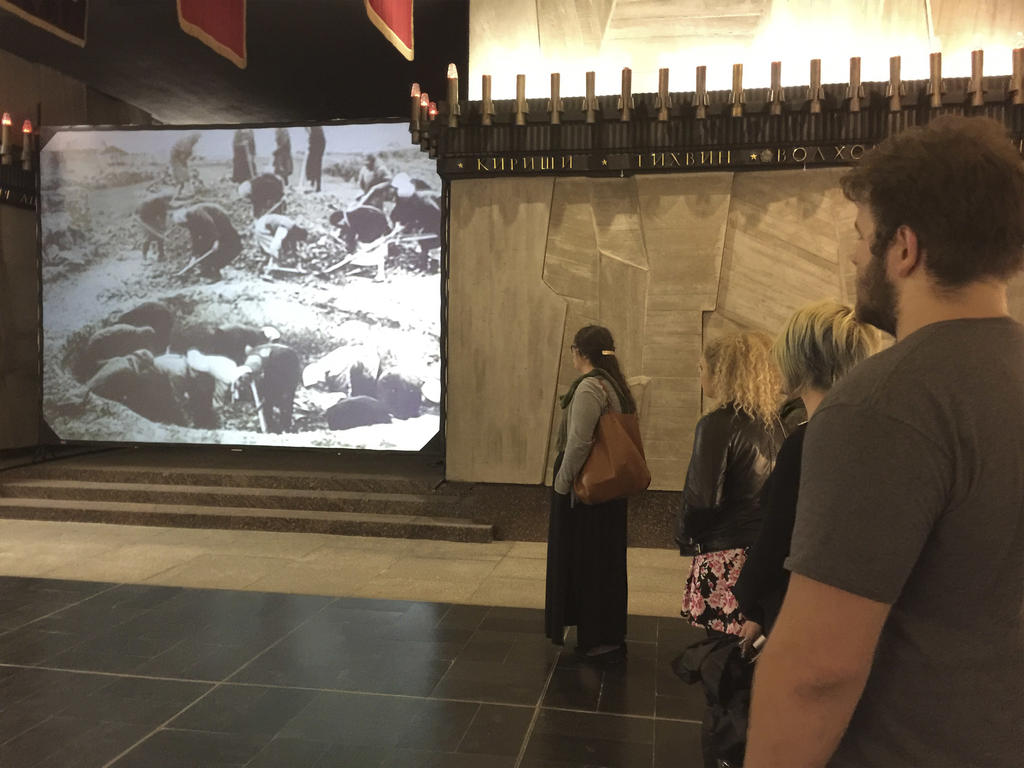In June of 2015, the United States and Cuba restored diplomatic relations, which had been severed in 1961. This move toward normalization between the two countries allowed Dr. Valeria Nollan, professor of Russian studies, to design a Maymester that includes, for the first time ever, a two-week study component in Cuba. Seven students from Rhodes participated in the course this summer, which also benefited from the assistance of Dr. Alexandra Kostina, associate professor of Russian studies, and Dr. Richard Nollan of the University of Tennessee Health Sciences Center.
The primary focus of the Cuba-Russia Maymester is the convergence of the Cuban and Russian cultures during the 20th century and especially after the Cuban Revolution in 1959. Nollan says that by analyzing the cultural, social, economic, and political relationships that these countries share, students can better understand how meaningful cross-cultural influences evolve.
Maymester participants engaged in language study (Spanish in Cuba, Russian in Russia), attended lectures, visited museums, and went on guided tours to historically significant locations, such as the Plaza de la Revolución in Havana and the Winter Palace in St. Petersburg, to provide a framework for situating their readings and classroom discussions. They then conducted research projects that analyzed comparable aspects of the two countries. Meredith Clement ’18, an international studies and political science dual major with a Russian studies minor, chose to research the role of women in leadership in both Cuba and Russia. “My project explored women working in leadership positions in government, business, and the community in each country,” says Clement. “This allowed me to see how far each country has come in the fight for gender equality, while incorporating the unique communist pasts (and present, for Cuba) into the perspectives.”
Nollan notes that Russia is very different from the way many Americans think of it; it is not a communist regime anymore, but instead a democracy with a federal system of government that allows for lively debate among members of the four political parties represented in the parliament. “All of this was new to the students,” says Nollan. “But one of the best things about the Maymester experience is that students can see for themselves and form their own opinions.”
For example, students learned about the devastating effects of World War II on Russia, which, for American students, are often overlooked. “To be frank, I did not understand the gravity of the Soviet Union’s involvement in the Second World War before this Maymester,” says Clement. “Through all of my schooling, I have heard the Western narrative of World War II, which emphasizes the Jewish Holocaust and the strength of the Allies. This course and the involved lectures and readings on the ‘Great Patriotic War’ [1941-45] provided me with a new perspective. During the Cuba-Russia Maymester, I learned how to ‘go with the flow,’ put aside my preconceived notions, and allow each of the countries to affect me in an authentic fashion. Further, this Maymester required me to put on a brave face, open my mind, and enjoy what the countries had to offer. I am definitely changed for the better because of it.”
By Drew McCormick '18
(Top photo) From left: Emily Perry, Kelsey McClain, E Theeke, and Arthur Frawley in St. Petersburg at the Museum of the Defense and Siege of Leningrad, watching a documentary film on the 900-day blockade (1941-44) of that city.
Below: Square of the Basilica of St. Francis of Assisi, Havana. Back row: Tour escort Julian, Prof. Alexandra Kostina, Meredith Clement, Emily Perry, Anna Rodell, Arthur Frawley, and E Theeke; front row: Polina Kostina, Jessica Carr, and Kelsey McClain.
(Above) In the Valley of Vinales, Cuba; (left to right) Emily Perry, Anna Rodell, Arthur Frawley, E Theeke, Prof. Alexandra Kostina, Lena [an Estudio Sampere student from Germany], Jessica Carr, and the group's two hosts from Vinales; seated: Kelsey McClain, Polina Kostina, and Meredith Clement
(Above) The group's farewell dinner took place in St. Petersburg in a Daghestani restaurant (Daghestan is one of the administrative units of the Russian Federation). Left to right: Jessica Carr, E Theeke, Arthur Frawley, Meredith Clement, Kelsey McClain, Anna Rodell, Emily Perry, and Prof. Valeria Nollan
